By Drew Dietsch | Published
Judge Dredd is a film that almost no one wants to defend. A box office failure and critical disaster, the mega-budget sci-fi action film remains remembered by most moviegoers as a mere footnote.
Twenty-five years later, Judge Dredd deserves re-evaluation for many reasons. And as the world recognizes the brutality and unchecked power that police wield during this time of global protest, it seems appropriate to look back at a film that actually addressed some of these issues.
What Judge Dredd Got Right
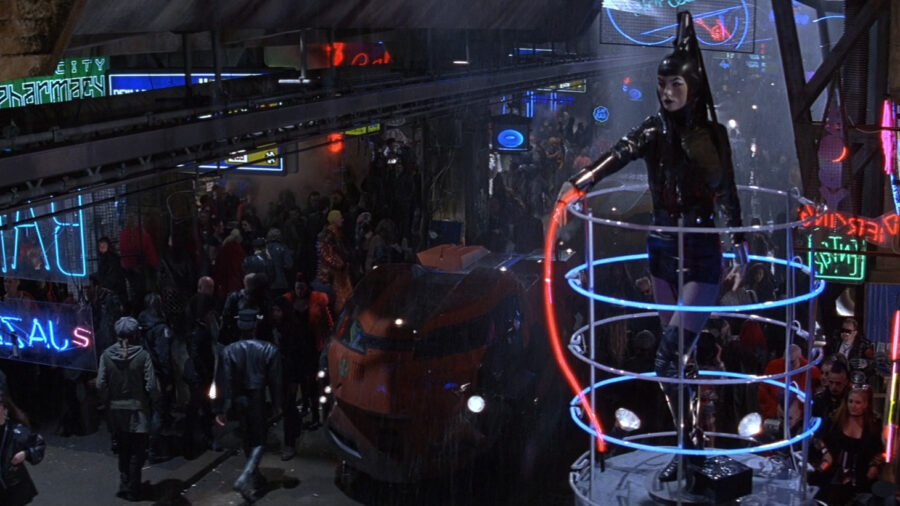
Before entering into the essential policy of Judge Dreddwe should do a service to some of the surface elements of the 1995 film. Because as a pure production, it’s a film that needs to be defended.
Production designer Nigel Phelps, whose work spans from 1989 Batman has Pokémon Detective Pikachuis incredibly inspired by both the 2000 AD source material and sci-fi world-building epics like Blade Runner. With an announced budget of 90 million dollars, Judge Dredd is a film that knows it has to display its particular futuristic look across the board. And it is.
Judge Dredd is part of an era when genre blockbusters were becoming the most expensive they had ever been. New technologies and classic cinematic art have never been more accessible to filmmakers. Before studios thought that the majority of effects work could be handled solely by CG, there was a period in the mid-to-late 90s when digital effects and practical work were married in a way that extremely effective. This film is one of the best examples. It’s a beautifully tactile production that should be celebrated as such.
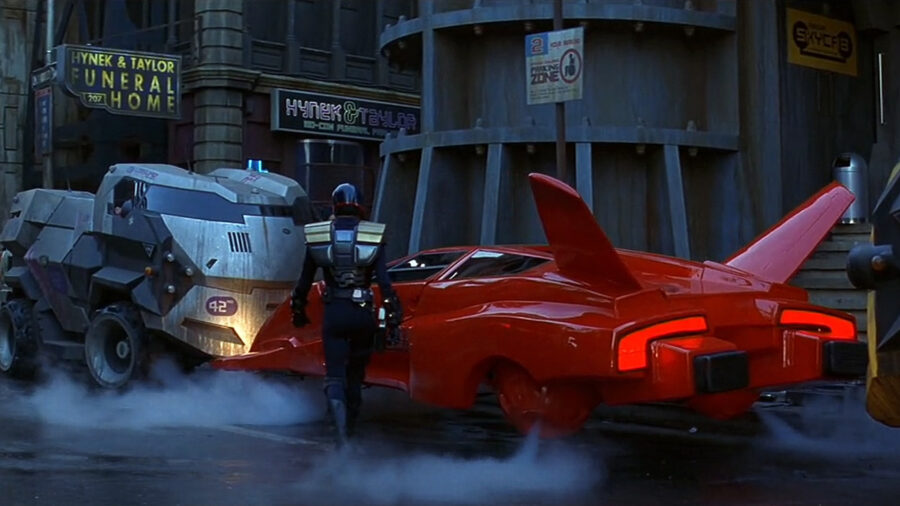
There are even more technical elements of Judge Dredd who need to spend time in the sun. The score by legendary composer Alan Silvestri (Back to the future, Predator, Avengers: Endgame) does his best on that Basil Poledouris pomp that we hear in films like RoboCop And Space Soldiers. Director Danny Cannon and his cinematographer Adrian Biddle shoot the film with colorful joy, taking advantage of the giant world in which they will play. The costumes are stellar across the board, especially the Gianni Versace version of the judge’s iconic outfit. This is a film that relishes every comic element it has. It’s not going to be grounded or gritty. This is a comic book film and well crafted. The fact that the film opens with a montage of colorful images from the comics should tell you what it’s for.
This is where things will get controversial for several reasons. One of these reasons has to do with the 2012 film, Dredd. This film was widely praised by critics and fans alike, but revisiting both Judge Dredd films, the 2012 version largely fails where the 1995 version succeeds (for the most part): being a faithful satire on fascist militarized police.
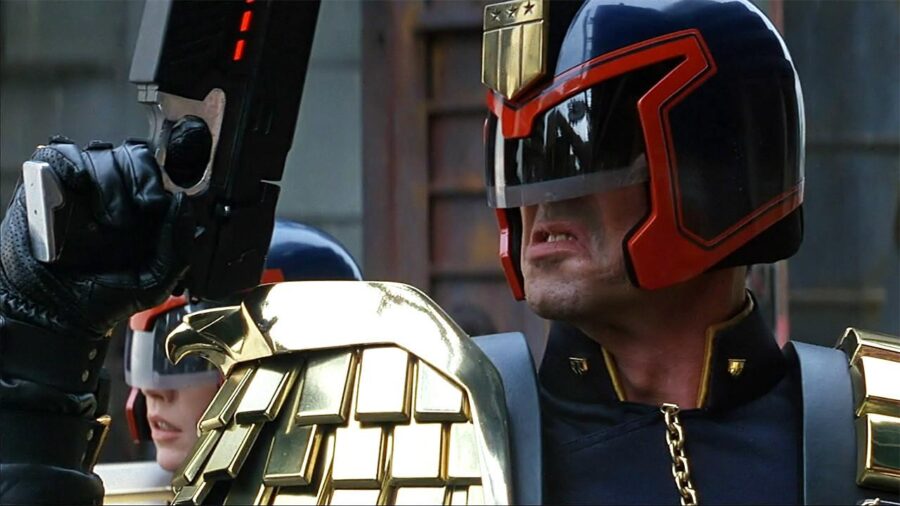
In Judge DreddDredd is ultimately accused of the murder of a journalist, Vartis Hammond, who plans to expose the Justice Department as corrupt. Hammond begins to believe that the Justice Department is helping fuel violent crime in order to enact policies that give it even more power. This is a film that clearly wants to explore the idea of systemic problems in policing. The idea of making Dredd, a character who treats the law like a religion, a victim of this corrupt system is fantastic drama and commentary. This seems like the best possible story to tell if you want to be faithful to the source material’s critical commentary on policing.
And although this element is present unlike the 2012 version, it ends up being left aside. Because while Judge Dredd works as flashy popcorn sci-fi action, it fails in several key ways.
What Went Wrong With This Mega-Budget Comic Book Adaptation
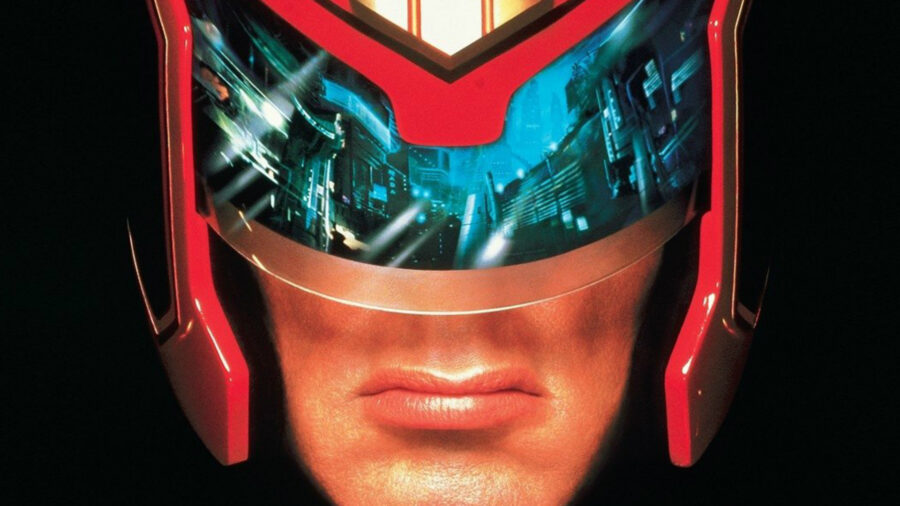
There are a number of things that absolutely don’t work. Judge Dredd. I say this as someone who still really enjoys the film. As an adaptation, many fans find it downright sacrilegious for Dredd to remove his helmet (which he never does in the comics). They don’t like the overall “generalization” of the tone in order to be something that might appeal to a wider audience. These are not the problems I have with the film.
Yes, it’s worth talking about Judge Dredd as a star vehicle for Sylvester Stallone. Like many films tailored to the personality and perception of a certain celebrity, the material in this film is often manipulated to become something less unique. Stallone must have a catchphrase, a comedic sidekick in the form of Rob Schneider, and must be portrayed as a square-jawed hero who saves the day. Stallone isn’t bad in the film, but he’s asked to insert a square peg into the round hole of satire the film wants to achieve.
In contrast, you have Armand Assante as the villainous Rico. Although he is also devoid of nuance, Assante can demonstrate grandeur and audacity here. He plays the role like he’s a guest from the ’60s. Batman television show. It’s entertaining in a camp way, but it weakens some of the dramatic weight its villain is meant to carry. In fact, the majority of excellent actors – Diane Lane, Jürgen Prochnow, Max von Sydow! – do a really good job with what they’re given, but what they’re given ends up failing them.
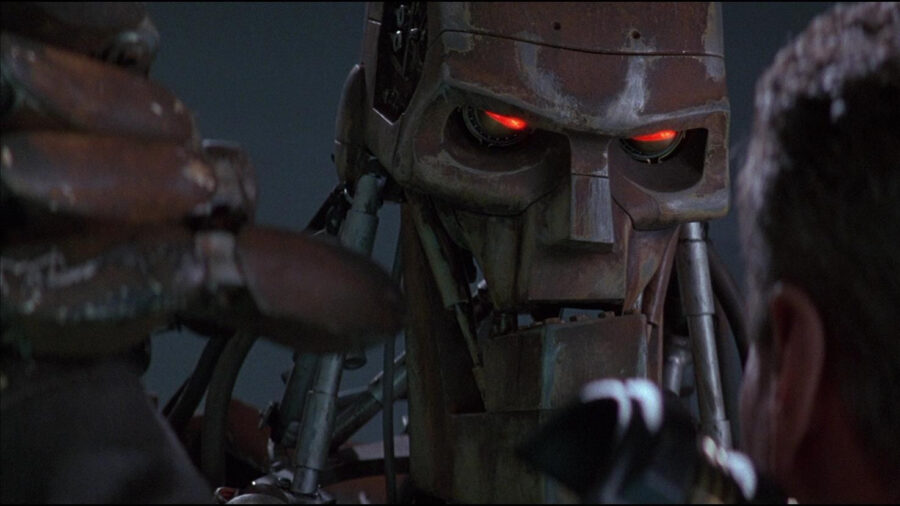
And although many will describe the cheesiness of Judge Dredd on the other hand, this is not where the film deserves your contempt. In fact, the cheesiness actually helped make this movie worth revisiting. The real big criticism is how the film ends.
After the revelation that Dredd and Rico are clones of Chief Justice Fargo (Max von Sydow) and that Rico wants to take over the Justice Department and replace all the judges with clones who will carry out his psychotic orders, Dredd is able to kill Rico and stop. his plan. At this point it is fully revealed that the Department of Justice was built on lies and the entire council of chief justices was murdered. The system was exposed and almost burned down. The judges look to Judge Dredd to see what he will do. They want him to become the new council leader.
His response? “I’m just a street judge.” Although he recommends that his partner Judge Hershey (Diane Lane) take the job instead, Judge Dredd just wants to get back to work as usual. This is where the film fails in its attempt to deliver a strong enough message about police reform. He pays lip service to the idea of change, but fails to commit to making a big enough statement.
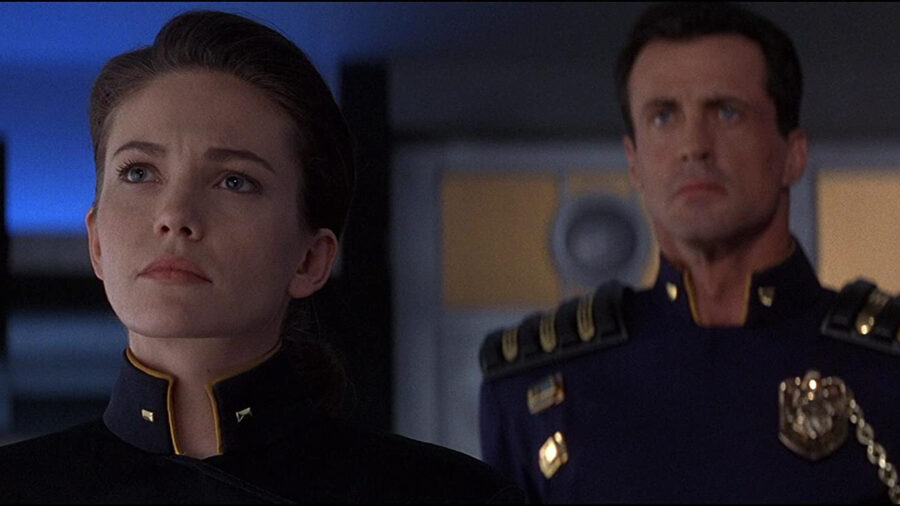
It’s here Judge DreddThe decision to pander to dominant sensibilities undermines anything subversive it might do. While this means it actually works on many levels, it never manages to hammer home the elements that set it apart.
Twenty-five years later, Judge Dredd constitutes a monument of big budget genre cinema. As a pure production, it must be considered one of the best achievements of the 90s. Everything about the texture of the film is a resounding success. And even its cheesiness helped cement the film as a piece of polished silliness. If the film’s satire had worked, it might have aged even better.




